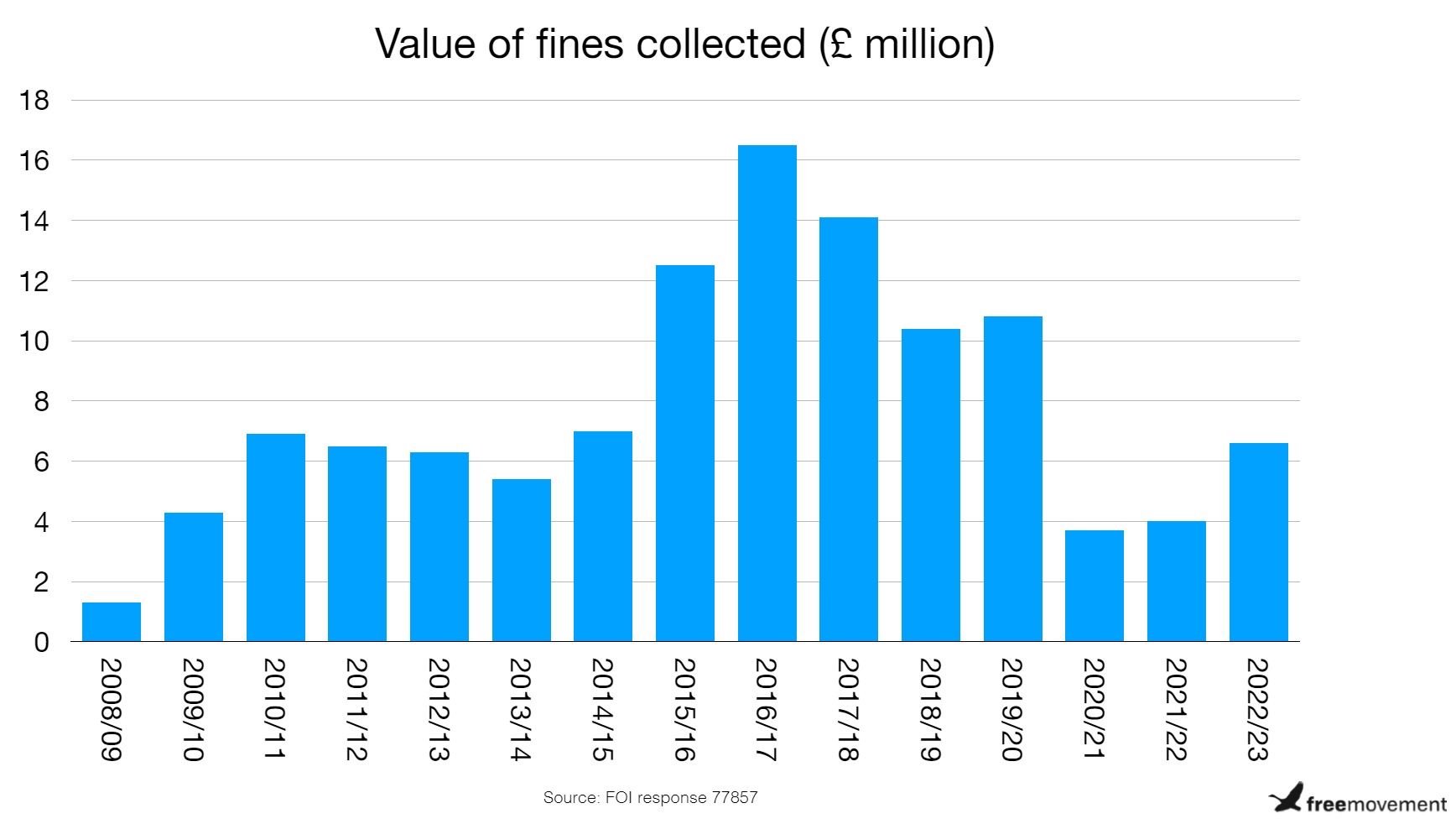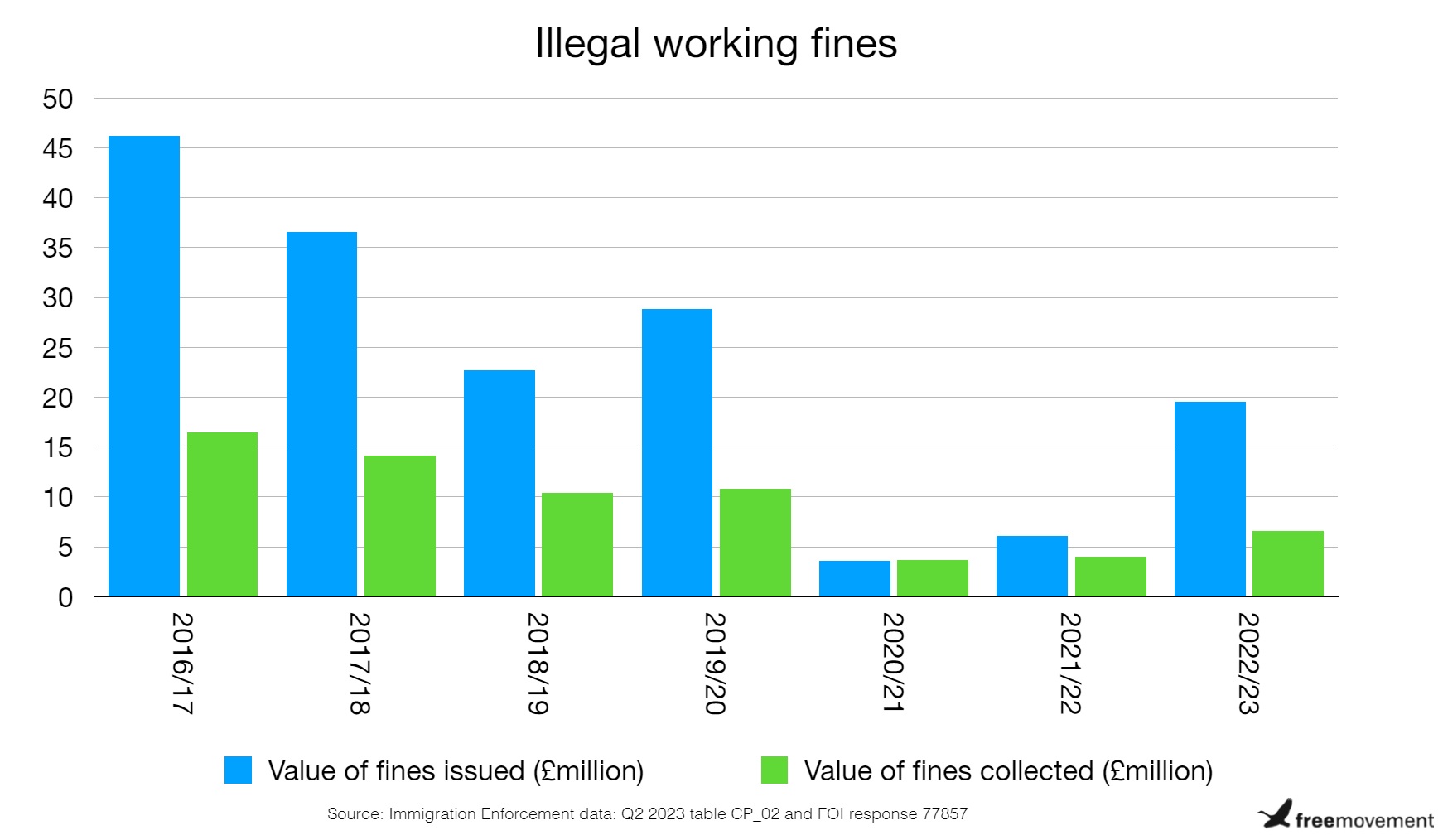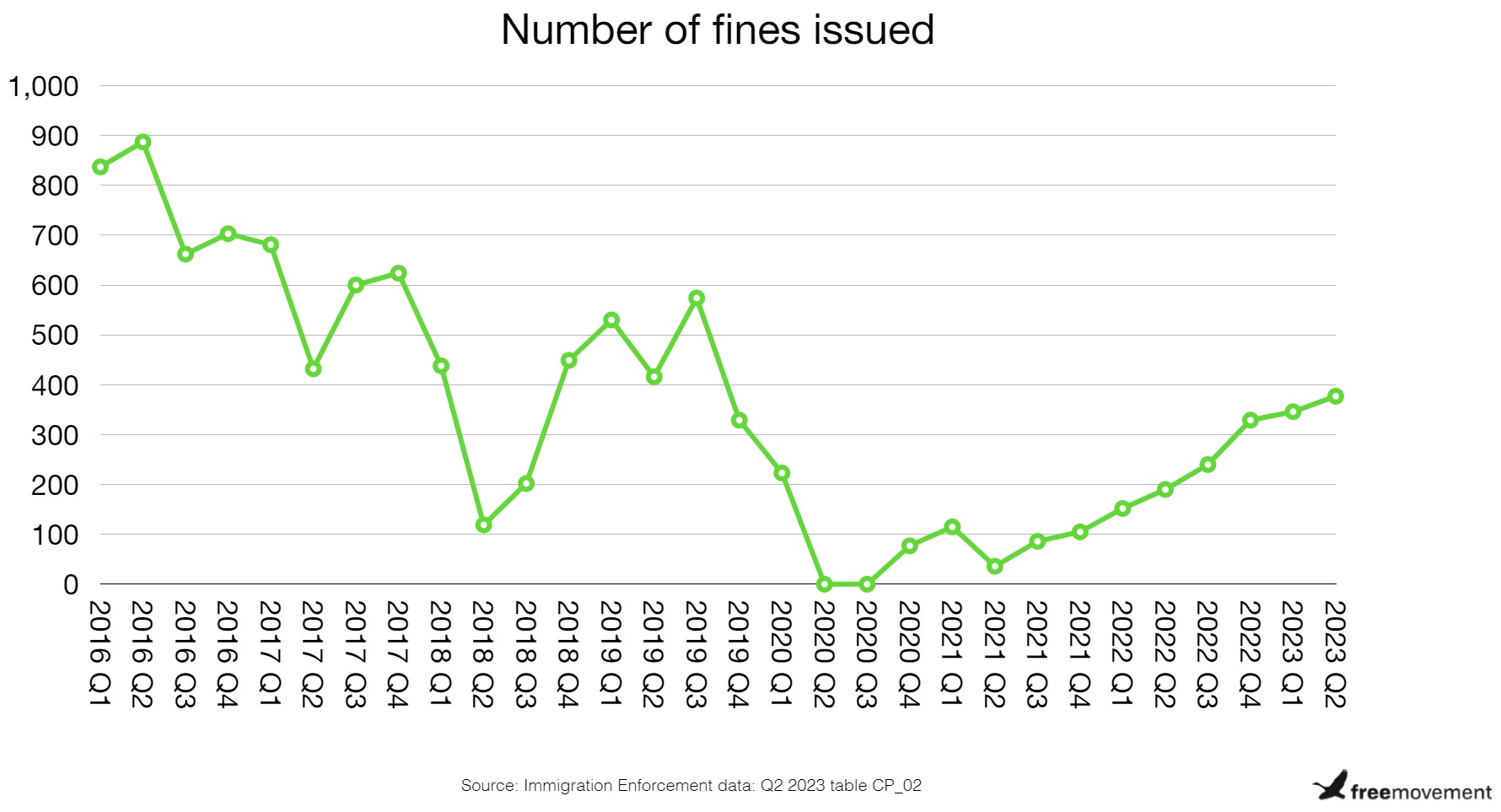- BY Sonia Lenegan

New illegal working fines will not stop Channel crossings but will bankrupt small businesses
Back in “Small Boats Week” during the summer, the government announced the tripling of employer penalties for illegal workers to £45,000 per worker. The immigration minister said that the increase was necessary because “making it harder for illegal migrants to work and operate in the UK is vital to deterring dangerous, unnecessary small boat crossings” and “illegal working and renting are significant pull factors for migrants crossing the Channel, where people smugglers will often use the promise of jobs and housing to lure people into making these journeys”.
The link between Channel crossings and illegal working fines on employers is extremely tenuous. The minister’s statement was presumably made in the full knowledge of the Home Office’s report from September 2020 on drivers and impact on asylum migration journeys. This states, under the heading ‘Access to labour market does not drive migration’ that:
Economic rights do not act as a pull factor for asylum seekers. A review of the relationship between Right to Work and numbers of asylum applications concluded that no study reported a long-term correlation between labour market access and destination choice.
The justification for the increase is therefore extremely flimsy. But it might well have other, unintended impacts.
What effect does the current system have on illegal working?
Fines are currently set at £15,000 per worker for a first offence and £20,000 for subsequent offences. The Home Office publishes statistics on the number and value of fines issued. The department does not publish statistics on the amount of money actually collected, though. That data has been disclosed in a recent response to a freedom of information request.

Over the past five financial years, fines totalling £80.7 million have been issued and only £35.5 million collected. It is one thing imposing a penalty. It is quite another thing getting an employer to actually pay it.
As explained in an earlier post, the difference can be partly explained by the 30% early payment discount available to employers who pay within 21 days. A 30% discount on £80.7 million would mean that £56.49 million should still have been collected, which leaves a deficit of over £20 million. Further, that assumes that all employers access the discount, whereas we know that previously only around half of employers did this.
Another partial explanation for the difference could be employers succeeding in internal reviews or appeals. Payments can also be made in instalments, which explains why recovery exceeded demand in 2020/2021.

The Home Office’s annual accounts indicate that there is an element of aged debt in relation to illegal working fines issued, some of which is written off. No figures are published as to the extent of this, so we do not have a clear idea of what amount is simply not paid or why.
From the published statistics, we can see that the number of fines issued is back up to pre-pandemic levels. Those levels are still dramatically lower than in 2016. The Windrush scandal is the likely cause of the steep drop at the beginning of 2018, however even before this the number of fines issued was far lower than in 2016.

The most recent inspection by the Independent Chief Inspector of Borders and Immigration on illegal working enforcement was published in 2019. The Home Office accepted all of the recommendations, however actual progress made is unclear. There is a current inspection in process so we can expect a new report relatively soon.
Conclusion
The pandemic makes it difficult to identify trends in the number of fines issued. We are also missing information such as any variations in the levels of enforcement work carried out by the Home Office and the extent to which that affects the number of fines issued. Without this sort of information it is not possible to determine the effectiveness of the system of fining employers for illegal workers. It seems unlikely that the Home Office has any idea either.
We are currently experiencing an economic crisis which has seen the highest level of company insolvencies since 2009. The government does not have any evidence linking the level of fines with a reduction in illegal working, let alone with a reduction in the number of people arriving by small boat and this increase cannot be justified.
The increase will not have any effect whatsoever on people coming to the UK to seek asylum. But it will drive more small businesses into the ground.
SHARE

